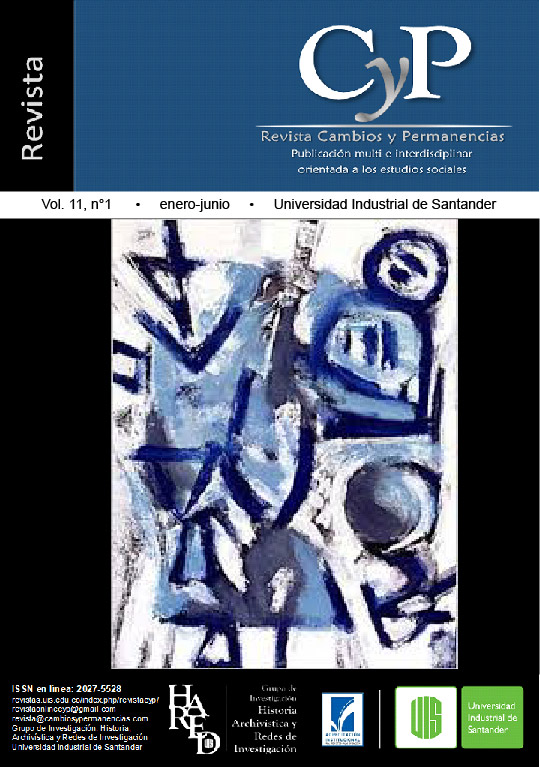Published 2020-06-30
Keywords
- subject,
- knowledge production,
- epistemic thinking
How to Cite
Abstract
The objective of this contribution is to reflect on an ongoing research process that is based on a way of thinking that is centered on the subject. In this form of construction of knowledge defended by those who proclaim an investigation from below and from the south, epistemic thinking must prevail over the theoretical as a basis for thinking, categorizing and recategorizing, with a view to stop reproducing knowledge and creating it from the experience of the subjects. In this line of thought various perspectives / ways of research in the region were developed. In this case, we choose to take on the challenge of doing a subject-centered mode of research following the provocation of Mexican authors who refer their reflections to the anti-capitalist and anti-statist subject inspired by the Zapatista subject who has autonomy as a project and walks asking as a method (Sandoval and Alonso, 2015, Salcido and Sandoval, 2016; Sandoval 2016, 2018 and 2019). We as a team, from our here and now, will reflect in this writing on the possibilities and limitations of this way of thinking.
Downloads
References
Escobar, A. (2014). Sentipensar con la tierra. Nuevas lecturas sobre desarrollo, territorio y Diferencia. Medellín, Colombia: Ediciones UNAULA.
Escobar, A. (2018). Notas sobre el colonialismo intelectual y los dilemas de la teoría social latinoamericana. En R. Sandoval (Ed), Cuaderno 2. Problema y desafíos de la formación en la metodología de la investigación (pp. 103-119). Guadalajara, México: Grietas Editores.
González Casanova, P. (1998). Reestructuración de las ciencias sociales: hacia un nuevo paradigma. México: UNAM.
Ortiz, A., Arias, M. I., y Pedrozo, Z. (2018). Hacer decolonial: desobedecer a la metodología de investigación. Revista Hallazgos, 16(31), 147-166.
Salcido, R., y Sandoval, R., (2016). El problema y el sujeto en la investigación. Metodología y epistemología crítica. Guadalajara, México: Universidad de Guadalajara.
Sandoval, R. (2016). Cuaderno 1. Formas de hacer metodología de la investigación. Reflexividad crítica sobre la práctica. Guadalajara, México: Grietas Editores. Colección Cuadernos de Metodología pensamiento crítico.
Sandoval, R. (2018). Cuaderno 2. Problema y desafíos de la formación en la metodología de la investigación. Guadalajara, México: Grietas Editores, Colección Cuadernos de Metodología pensamiento crítico.
Sandoval, R. (2019). Cuaderno de Metodología y pensamiento crítico. Pensar crítico y la forma seminario en la metodología de la investigación. Guadalajara, México: Universidad de Guadalajara.
Sandoval, R. (2020). Documento inédito del mes de marzo. Guadalajara, México: Inédito.
Sandoval, R., y Alonso, J. (2015). Pensamiento Crítico, sujeto y autonomía. México D. F. México: CIESAS.
Torres, A. (2003). Pasados hegemónicos, memorias colectivas e historias subalternas. En C. Walsh (Ed.), Estudios culturales latinoamericanos retos desde y sobre la región andina, (pp 197-214). Quito, Ecuador: Universidad Andina Simón Bolívar / Abya-Yala.
Torres, A. (2017). Hacer historia desde Abajo y desde el Sur. Bogotá, Colombia: Planeta Paz-Ediciones Desde Abajo.
Zemelman, H. (2005). Pensar teórico, pensar epistemológico: los retos de las ciencias sociales latinoamericanas. México D. F., México: Ipecal.

